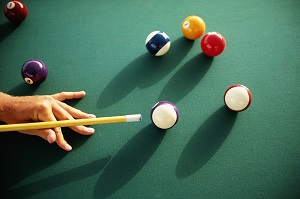Alcohol Abuse: Determining Which Drinking Games Cause The Most Alcohol Consumption
The college years are filled with opportunities to compete. From academic contests to dorm room antics, there is a drive on campus to define hierarchies and social order. Even in college partying, where the scene may seem to be much more chaos and order, there are social ordering activities taking place. Drinking games are often used to show how a person handles alcohol or can retain their cognitive abilities while under the influence.
Previous studies have shown that engaging in drinking games can predict whether a college student will drink heavily. However, little is known about whether the type of drinking game will affect how heavily a student will drink. Recently a team of researchers examined various drinking games and their relationship to the drinking behaviors of college students (LaBrie, Ehret & Hummer, 2013).
The participants were recruited through two universities located on the west coast. They were invited to participate in a web-based screening. The researchers used the results to include only the participants who reported consuming at least one drink per week, resulting in 3,421 participants or 68.3 percent of the respondents to the survey.
The participants were asked about demographics, including whether or not they participated in the Greek system and also were asked about their drinking game activities. The researchers asked the participants how many days they participated in drinking games, the games played and the alcohol consumed on the occasions when the games were played.
Alcohol Games leading to Alcohol Abuse and Addiction
 To get an understanding of the various games the students mentioned, the researchers used the Internet to search descriptions of the games. There were 100 distinct games coded by the researchers, distributed into five categories.
To get an understanding of the various games the students mentioned, the researchers used the Internet to search descriptions of the games. There were 100 distinct games coded by the researchers, distributed into five categories.
The results showed that competition games were the most popular games, followed by chance games. The majority of respondents indicated that the competition games were also the games in which they drank the most alcohol.
Peak drinking games were reported differently by gender, race and Greek status. Students who were Caucasian males who participated in the Greek system were most likely to report peak drinking connected with competition games. The highest number of drinks associated with a peak drinking game was found to occur during extreme consumption games.
The authors note several limitations associated with the findings. For instance, the results were based on self-report and suffer the usual possible problems associated with recall bias. In addition, the question related to drinking games was open-ended and may have affected how the students responded.
The findings of the study provide new insight into the influence that the atmosphere and culture of a college campus and its traditions relating to drinking games may impact students’ drinking behaviors. It may serve to educate students about the risks of engaging in tempting competition that leads to heavy drinking.
Alcohol leads to more than addiction, but medical issues too. Read: Alcohol, a Preventable Cancer Risk ‘Hiding in Plain Sight’



